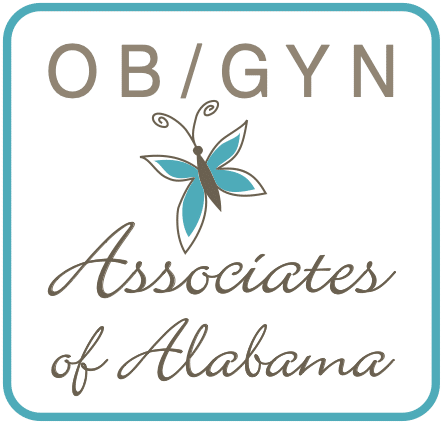6 foods that can cause a weight-loss plateau
Weight loss is a tricky thing: One week you’re on top of the world, the next you feel as if nothing’s working. If you feel like your weight-loss efforts have come to a standstill, understand that this is a common occurrence. It’s normal to experience some ups and downs on the road to your goal weight. As you progress, you may find that what worked for you in the beginning is no longer meeting your needs. Sometimes, certain foods can interfere with your body’s ability to shed excess weight. It may be necessary to re-examine your diet and see if you need to make any adjustments to get over the stall. Take a look at these common culprits to see if any apply to you.
Dried fruit
Fruit, in its natural form, is healthy. But dried fruit — such as the kind often found in trail mix or in the bulk foods section of the supermarket — is typically laden with added sugar. And sugar is an enemy to your weight-loss efforts. Not all dried fruit is created equal: some varieties come without added sugar, and these are usually safe foods to eat. But you must pay attention to labels and choose wisely. You don’t have to give up the sweet, antioxidant-packed goodness that fruits offers. Just choose fresh fruit when possible and buy products free of any added sugars!
Dairy products
Dairy products like cheese and cream can be problematic for many people. Conventional dairy contains lactose — a kind of milk sugar that spikes insulin. This insulin spike is a precursor to weight gain. So is the acidic nature of conventional dairy products, which over time can lead to inflammation in the gut. Therefore, it’s better to reduce dairy intake and stick to alternatives such as almond milk and coconut milk.
Artificial sweeteners
One might think that artificial sweeteners would have little or no effect on weight because they don’t contain calories. But studies have shown that these sweeteners interfere with our body’s ability to metabolize sugars — and not in a good way. What’s more, regular intake of artificial sweeteners can lead to an array of health issues. If you need to use sweetener, it’s best to stick to natural sweeteners such as stevia. If you’re looking for something to replace your diet soda, look for beverages sweetened with stevia or sugar alcohols such as erythritol.
Coffee
A cup or two of coffee in the morning is perfectly fine. But overdosing on coffee is another story. Five or more cups a day is too much, and can lead to increased insulin resistance and reduced ability to metabolize fat. Limit your coffee intake to no more than two cups a day, and pay attention to what you add to your morning cuppa. Half and half, sugar, sweetened syrups — these calories add up. So keep it simple and limit the extra stuff.
No-fat, low-fat foods
When packaged foods read “fat-free,” or “low-fat,” stay away! These highly processed foods are stripped of their nutrients. Be wary of packaged foods in general. Whole foods — the ones you need to reach and maintain a healthy weight — don’t come in packages. They’re fresh, and they have all their nutrients intact. If you look at the ingredients in fat-free or low-fat box foods, you’ll see that sodium, sugar, and other artificial preservatives have been added. You might even see high fructose corn syrup on the ingredient list. These types of additives are seriously detrimental to your health and weight-loss goals. Generally, the more ingredients you see listed on a product, the less healthy it is. So, eat foods that are as close to nature as possible, and leave out the ones that have been tampered with by humans or created in a factory.
Refined salt
Eating too much table salt can leave you with a water-filled bloat. Conventional salt is no good for weight loss. You’ll find an overload of this kind of salt in those packaged and processed foods mentioned above. Adding high-quality sea salt to whole foods on the other hand, is both healthy and satisfying. Sea salt like pink Himalayan salt is good for you because it’s jam-packed with trace minerals like iron, copper, potassium, magnesium, and calcium. Eating 2-3 teaspoons of healthy sea salt each day is perfectly fine and even good for you!
What to Eat and Drink
The best way to support your weight-loss journey is to eat real food! Think fresh, organic fruits and vegetables; dark, leafy greens; grass-fed meats; and wild-caught fish like salmon, cod, and halibut. Nuts, nut butters, and seeds can be eaten in moderation.
Drinking plenty of water and herbal teas is also beneficial. Stay away from excess alcohol. If you’re accustomed to having a small glass of wine with dinner, that’s okay. It’s best to skip the beer and wine altogether, though, if you’re serious about losing weight. One way to skip the drink (or two) in the evening is to plan some kind of activity for after dinner hours. This might include an evening walk or bike ride, or even a yoga or Pilates class. Having something active to look forward to will help. Surround yourself with likeminded people — those who want to live a healthy lifestyle. Before long, you’ll be at your goal weight and feeling better than ever!
As always, don’t judge yourself too harshly when you experience setbacks. You’re bound to indulge every once in awhile. When you do, allow yourself to enjoy, and get right back on track the following day.
Need help meeting your weight-loss goals? SmartFit offers personalized diet plans to help you look and feel your best! Contact us today for a FREE consultation!
